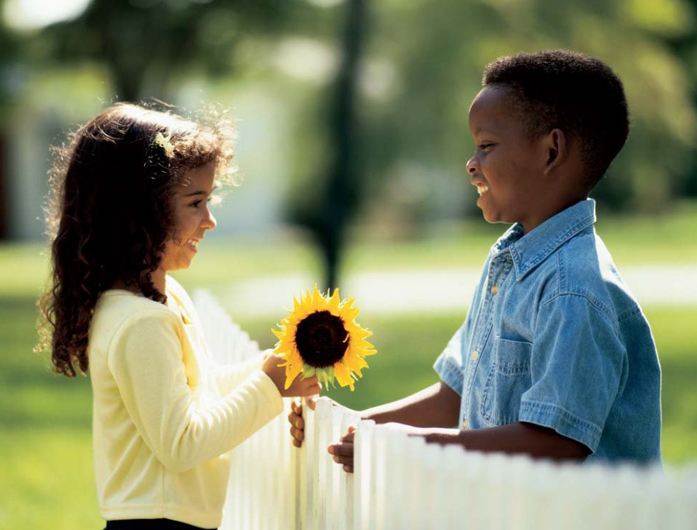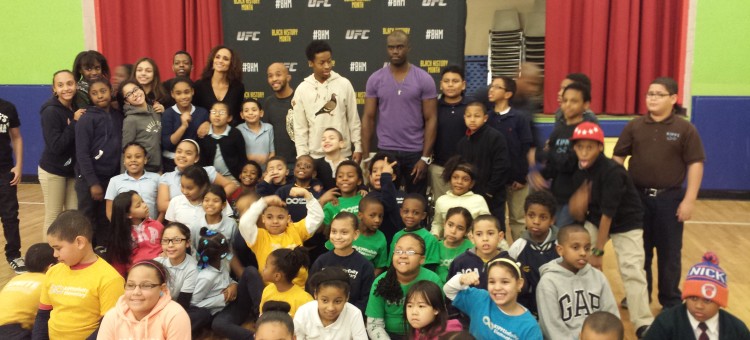Times are very different and with new times come new propensities, sets of conduct and states of mind that appear to be altogether different from the ones we were used to when we were kids.
Today’s generations are altogether equipped with the most up to date gadgets that appears to distract them from the need to go out and play and socialize in the ways we used to or simply invest energy having some good times.
Every one of these progressions have brought an extraordinary test to parents who, if you ask a child, weren’t sufficiently blessed to have the advantages of the present current technology.
The tests change from multiple points of view, however the primary things is that the present parents bring up their youngsters way more uniquely in contrast to they were raised and the result of those guardians’ care is the best challenge.
Will my child figure out how to be a complete person, the person who pushes forward and a man with great behavior, who can security and speak with others freely and openly?
Each parent asks similar questions: Am I missing something? Am I doing everything right? Will my kid prevail in life?
Therapists at Harvard Universty have thought of similar inquiries and have discovered that there are a few components that are still imperative and essential for each child’s adolescence. The key to to raise a balanced youngster in these changing circumstances is not as complicated as you may think.
These are the 5 secrets to raising a good kid, according to Harvard psychologists
1. Investing quality time with your children

It’s insufficient just to be physically around your child – you should be with them totally. This implies no Xbox or new iPhone can supplant the holding that the youngster really needs. By speaking with them straightforwardly, listening precisely and doing the things they like together, your tyke won’t just adore you all the more, however will likewise figure out how to be a kind and minding individual, and recall their youth a positive experience.
This is the foundation of everything. Your child would especially favor (above everything else) having a real human being to converse with and to impart thoughts and encounters to, regardless of the possibility that they may not appear to be mindful of it.
Ask them how their day was, listen precisely and examine the dilemmas they may have in their mind – be mindful so as not to “dogmatize” lessons from your encounters however, they have to encounter these things through their own particular point of view. We’ll discuss this later in this article.
See what their most loved things are and attempt to gain from them how to play the recreations they like – they would appreciate sharing their “enjoyment” with you!
Read them a book before bed (or do it together amid the day in the event that they are in the inclination for it). Simply associate with them totally and recognize their feelings.
Basically:
- Dedicate some time of your day to play their most loved games with them;
- Read them a bedtime story and enjoy the entire story with them;
- Get some information about their day, ask questions like:
- What was the best part of your day? The hardest part?
- What’s something nice somebody did for you today? What’s something nice you did?
- What’s something you realized today – in school or outside school?
2. Give your kids a chance to see a strong moral role model and mentor in you

Youngsters gain the most from their surroundings particularly at more youthful age. What you do is what they will become. This is the reason you need to be very careful to your conduct and activities and be prepared to admit blames and faults. Demonstrate your tyke that you give it a second thought and that you are prepared to acknowledge your mistakes and work on them.
The outcome you wish to find in your youngster originates from the effort you put into yourself on this one. Practice decency, trustworthiness and care for yourself. This picture will educate your child to do similar deeds. The way to this is to talk these things through with your tyke.
Recognizing your mistakes, particularly those that include your child in them, and talk straightforwardly about these things.
The point is to demonstrate your tyke great behavior, humility, and integrity. With that they will feel significantly more helped and urged to look to a positive result in their issues.
Your youngster will admire you only if you gain their trust and respect. Accomplishing this is demonstrating your youngster that you are as human as you can be, and that accompanies mistakes as well.
Basically:
- Admit your mistakes, apologize and demonstrate that you wish to compensate for them and plan to maintain a strategic distance from it next time.
- Advise your tyke how you intend to maintain a strategic distance from that error and what you gained from it.
- Set aside a few minutes for yourself and re-stimulate yourself amid that time. You will require that energy to be more mindful to and caring with others.
3. Educate your child to care for others and set high ethical expectations

Your kid needs to socialize and bond with others in the correct way. Caring others’ happiness and keeping away from selfishness can bring a great deal of advantage to your tyke’s future.
As the specialists from Harvard said, “It’s critical that youngsters hear from their folks and caretakers that thinking about others is a top need and that it is similarly as vital as their own particular happiness.
Despite the fact that most parents and caretakers say that their youngsters being caring is a top need, frequently kids aren’t hearing that message.”
This accompanies holding your youngsters to high moral expectations. Be prepared to respect their responsibilities. Show them how to make the best choice even when it’s hard and be a good example for this. It’s basic: you have to justify whatever you say to them with your actions.
Duties and commitments are something you generally need to help your youngster to remember. They come in each shape even from early age: tasks, school duties, conduct, companions, and promises.
Make certain to advise them that they are not the only one and that others have expectations from them that they should be prepared to fulfill, on the grounds that they can.
Basically:
- Change the message you send them once a day from “The most important thing is that you are happy” to “The most important thing is that you’re caring and you’re happy.”
- Urge your child to “work it out” before choosing whether they ought to stop a sports team, band or a friendship. Request that they consider the outcomes their activity may have on the others and urge them to work the issue out before deserting it.
4. Encourage kids to practice appreciation and gratitude

A kid that is not spoiled is a kid that recognizes the parts of others in their life in a healthy way. This affirmation accompanies thankfulness for the general population who contribute to their lives.
Appreciation is a two route street with superb impacts. Individuals who rehearse appreciation all the time will probably be useful, generous, compassionate and forgiving. They are additionally more inclined to be happy and healthy.
Give their habit a chance to begin from gaining from your actions. Be prepared to demonstrate appreciation for something decent they accomplish for you – however be cautious!
Demonstrating a considerable measure of appreciation for things they should do will ruin them! As the Harvard specialists say, “real responsibilities”.
“Anticipate that youngsters will routinely help, for instance, with family unit tasks and siblings, and just praise remarkable acts of generosity. At the point when these sorts of routine activities are just expected and not remunerated, will probably end up plainly imbued in every day actions”.
Basically:
- Encourage your kid to be thankful all the time. Be prepared to get appreciation for your extraordinary acts of kindness and generosity towards them.
- Encourage to express thankfulness towards relatives, educators, or other people who contribute to their lives.
- Be thankful.
5. Teach them to see the big picture

A typical reality is that youngsters identify with and think about a little part of families and friends. This is an exceptionally typical thing, obviously, yet the genuine test is to instruct children to begin contemplating about individuals outside that circle.
This bigger circle could incorporate another child in class, other individuals who work in his/her school, a man who doesn’t talk your dialect or any individual who lives in another nation. Youngsters need to know how their contemplations and activities can affect a group.
As the study reveals, “It is vital that youngsters figure out how to zoom in, listening closely and taking care of those in their near circle, and to zoom out, taking in the 10,000 foot view and considering the number of individuals they connect with every day”.
Basically:
- Encourage your youngster to consider the points of view and sentiments of others, particularly the individuals who might be helpless. Give them basic thoughts for making a move, for example, comforting a child who was bullied or connecting with the new child in class.
- Adolescence is the time of life when the greater part of our identity is molded. That is the reason you should begin focusing on their improvement, the most ideal way you can – by helping them comprehend the primary things that make them complete people.
